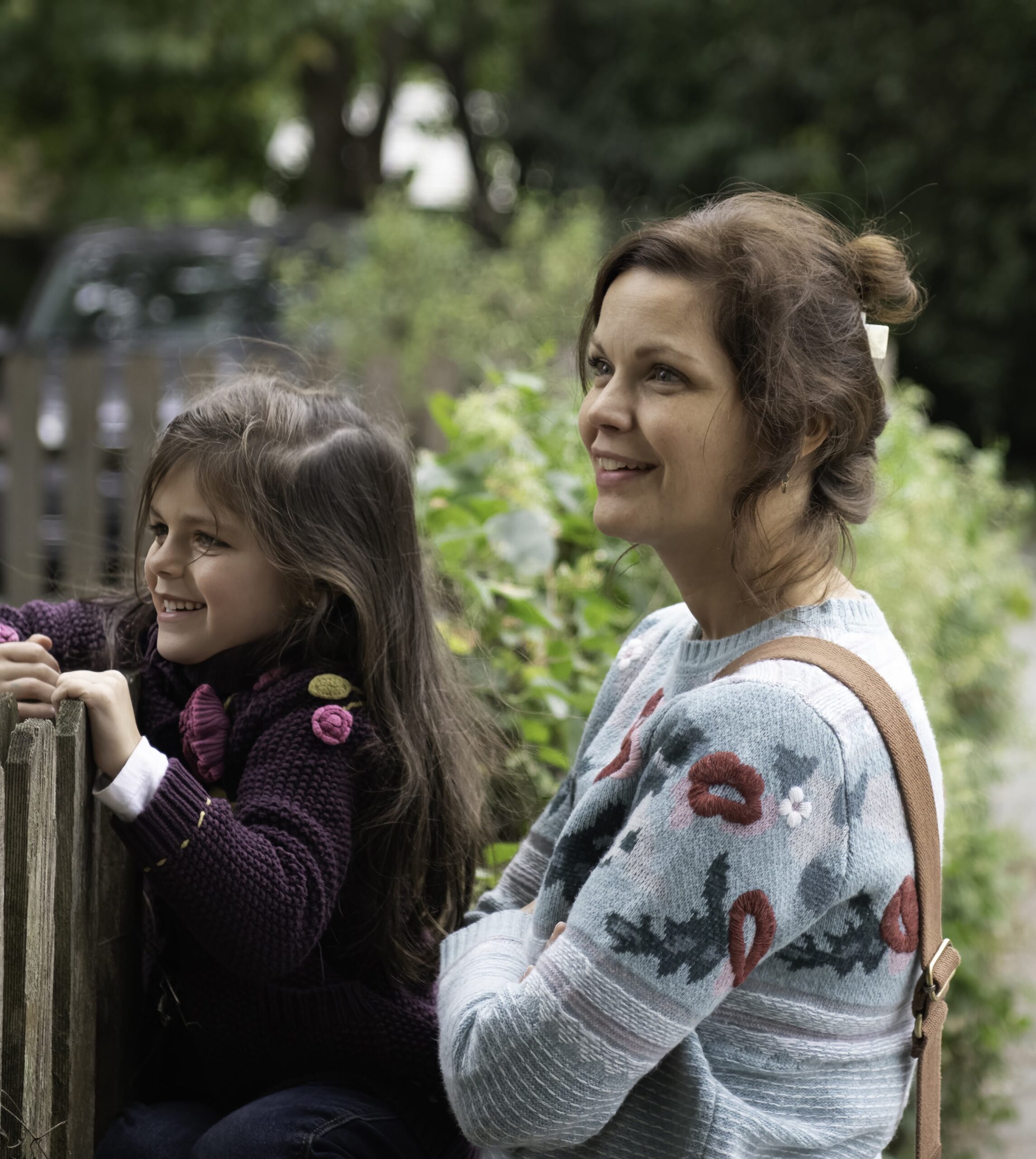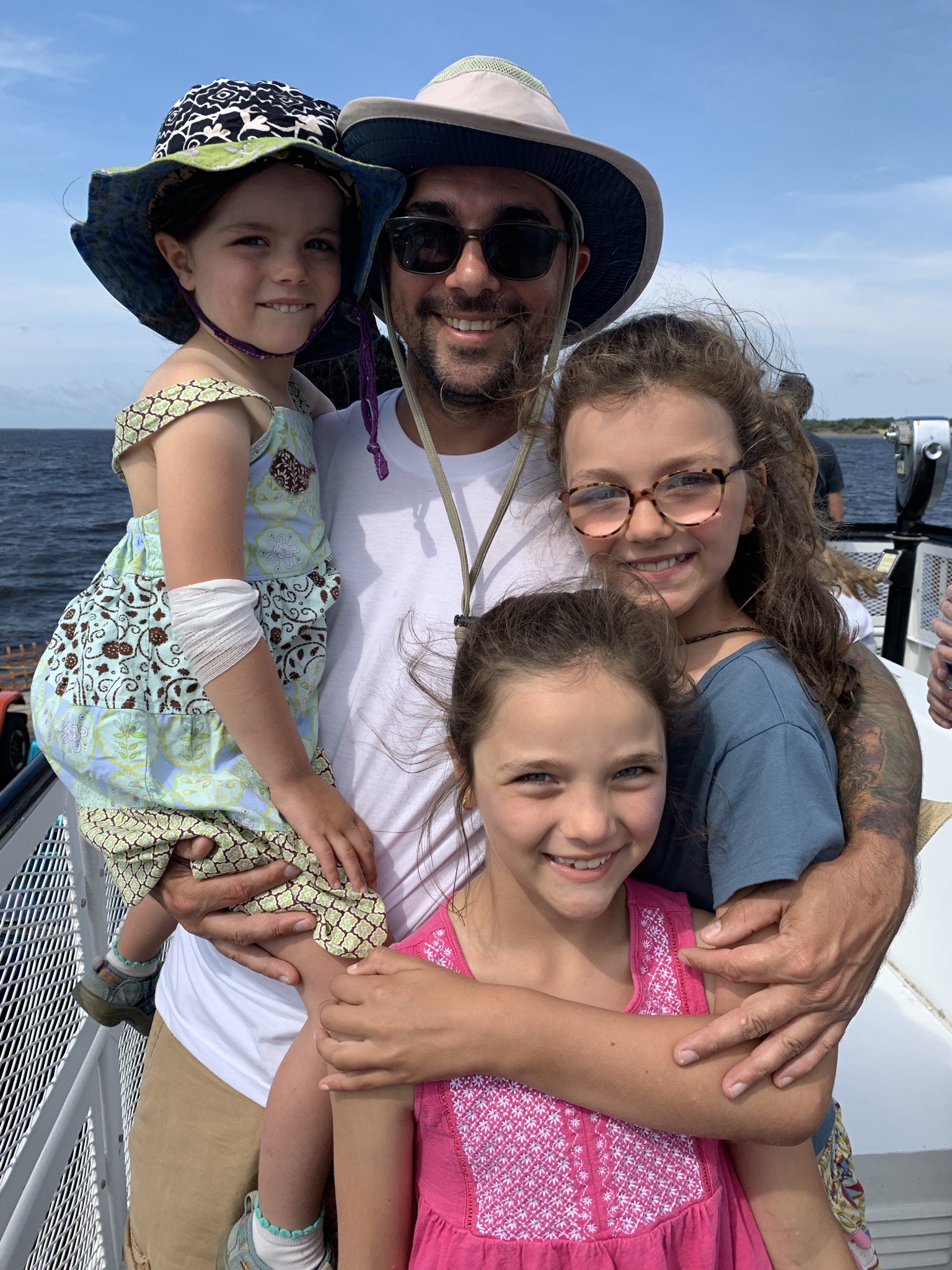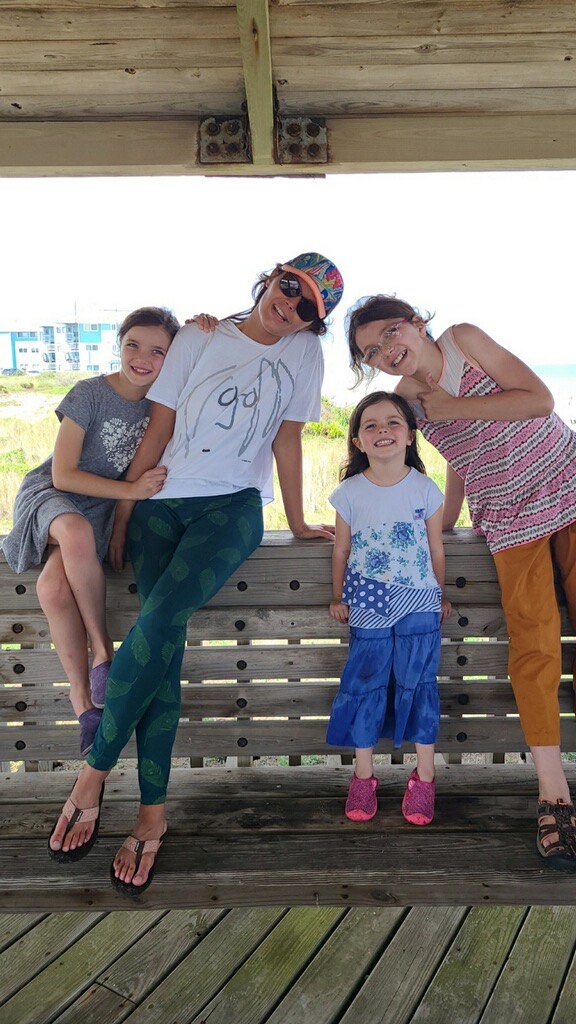 We asked alums, alum parents, current parents, former teachers, and more what makes SWS special. The overwhelming response was our community. The teachers and staff who welcome new families with open arms. The teachers who lovingly shape the lives and minds of our students. The parents who find friendship and camaraderie in their parenting journeys. The students who make lifelong friendships. The festivals and community events. Our campus tucked away along the Susquehanna River in beautiful Marietta. What makes our school by the river special is our community. In honor of this, we will be interviewing members of our incredible community. The parent of 3 SWS students, Asia Pecora, agreed to sit down with us to talk about her experience as a parent at our school.
We asked alums, alum parents, current parents, former teachers, and more what makes SWS special. The overwhelming response was our community. The teachers and staff who welcome new families with open arms. The teachers who lovingly shape the lives and minds of our students. The parents who find friendship and camaraderie in their parenting journeys. The students who make lifelong friendships. The festivals and community events. Our campus tucked away along the Susquehanna River in beautiful Marietta. What makes our school by the river special is our community. In honor of this, we will be interviewing members of our incredible community. The parent of 3 SWS students, Asia Pecora, agreed to sit down with us to talk about her experience as a parent at our school.
How long has your family been a part of the SWS community?
My oldest, Ana, is in 6th grade and she was here for kindergarten with Miss Linda. It’s been over 7.5 years that we’ve been here, going on 8 years. For a family, it’s a very long time. Joe and I have been together 13 years so we’ve been a part of this community for more than half of the time we’ve been together! Luli is in 4th grade and she started with Miss Jessie as a Buttercup. And now Miss Jessie has Gisi. Joe and I have figured out that by the time all is said and done, it will be 20 years, god willing, that we are here – by the time Gisi has gone through her 8th-grade class. It’s been a part of the children’s lives for, you know, basically their whole lives. I really see the Waldorf school and community as a greater family to me. That’s how it feels to me. That’s why Joe and I are so, the word isn’t even invested (even though you do pour so much time, and money, and things into the school), but all of our hope, all of our dreams and aspirations live here. They live in our home as well but they live here with the people who are here.
What led you to Waldorf education?
When I had Ana, we lived in Lancaster and we were both working full time. We were trying to find an early childhood option for her. We were right by the Montessori school and we went there. Ana didn’t thrive there. She was my first child and I didn’t really know what I was looking for, but I knew it wasn’t there. Joe actually came here without me and met with [former Admissions & Marketing Director] Michelle Wann and got a tour of the school. Joe came home and was just like, “that’s the place. That’s where she’s going to go.” And that was it.
Ana immediately just loved it here. A lot of the physical work and play that we do here, it wasn’t like that at the Montessori school. She wasn’t getting the bigger play, the gross motor skills there. The social aspect in early childhood education here was everything that our children needed.
Did you have any concerns or apprehensions about Waldorf Education?
It sounds corny but coming here and starting in the early childhood program was like coming home. That’s what it felt like. So in that sense, intuitively, I had no hesitation. At the time we were a young couple and, you know, like rubbing pennies together but we have a very supportive family, in terms of getting them here, picking them up, while we work full-time. That was our biggest hesitation, how we were going to logistically make it work?
There was also this pressure because Ana received speech therapy. This pressure on the academic life of a child. When do you introduce that? What is a normal window for a developmental milestone? What does mainstream culture say about what your child should be doing at a certain time? And there’s so much information out there. We felt very supported in those questions here. We were able to have her get speech therapy in the home. We were able to kind of pick and choose what we wanted to do.
When we came here, we found a place where we were able to have meaningful conversations and we developed relationships with Miss Linda and Miss Jessie. So much trust was built. Like many people, Joe and I came in thinking that society, or education is trying to give the child meaning, to put the information into the child. We came to learn that through the child’s play, they develop and find the meaning themselves. And then the child becomes a revelation to us. Once we understood that, once we were there, it was life changing.

How has Waldorf education impacted your children?
They love to sing. They love music. They love to draw. They love to paint. They love to read. They love their friends. They love people. They love the birds. They love the dirt. They love everything. In early childhood and grades, there are all of the songs about the goodness in the world and all of that is instilled in them. It’s imbued in them because of Susquehanna Waldorf School. They’re just joyful and they love to come to school.
This is a bit anecdotal but Gisi was talking about making the Kindergarten auction project. She was saying, “we were working on that driftwood tree and it’s going to bring a million to the school, mom! A million! So the school can be there for a long time.” Clearly, she hears mom and dad talking about the importance of the auction but she loves it here. She feels part of the community too. She knows that what she does is important and that it’s valued. I think she will take that with her. She feels a part of the community. It’s a protective place. As a social worker we talk about protective factors in people’s lives, and this school certainly is that.
What keeps you here?
Going back to the community. For the children, you see that play out in their lives every day. But Joe and I have formed lifelong friendships with other parents and grandparents at this school. We are also benefiting from the community. I think it’s really difficult out there in the world to find meaningful communities where people and children belong. We have a sense of freedom here in our community.
At SWS, there is an understanding of the spiritual life of the child… and it’s hard to find that. Well, I found it here. And I know for some people, the spiritual part of Waldorf education, it’s not something they consider. There are other aspects of the education they value. For me, it certainly is part of my choice to stay here.
I love the curriculum – they study a wide variety of culture and human experiences. The cultural studies here at the school, you cannot find that in public education. That human work that we do here, that has kept us here. It has enriched our lives.

How has Waldorf education impacted you as a parent?
It’s built up my courage as a parent. It’s built up my strength. It’s really beyond words what the school’s done for me as a person. I know that I have made deep connections with other people here. I’m not sure that I would’ve been able to have deep connections with my children’s teachers in a different setting. I respect and value their teachers and the leaders here so much. And that has changed me because I think, growing up for me, I can only think of one or two positive relationships with teachers. So it’s given me hope in what a community can look like. Where people can thrive and live and be free. It’s given me hope and it’s given me the courage to keep going.
What’s your favorite thing about the SWS community?
My favorite thing about the community: the colors, the smell, the food, the music, the joy, the humor, there’s a lot of humor here. I think it has to be the children, though. Just seeing their faces, watching them dance, watching them sing, watching them play.
